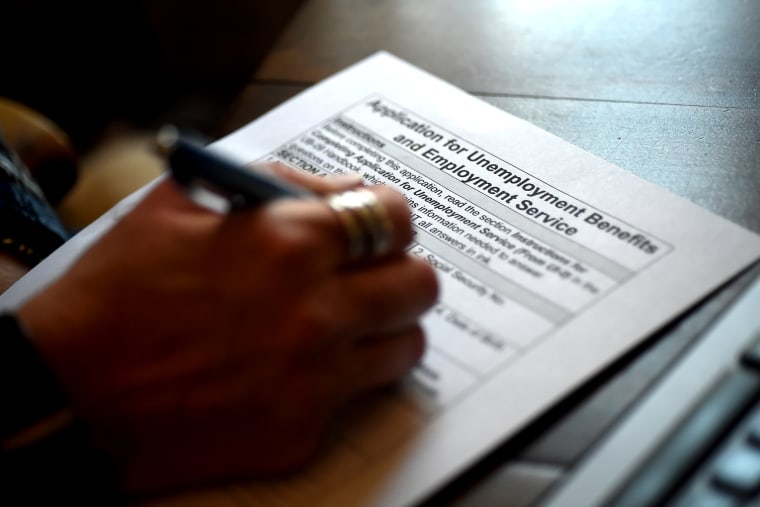The new report from the Labor Department on weekly unemployment claims found 803,000 new filings last week, which was an improvement over some recent reports, though the total is still higher than the tallies from October and November.
As discouraging as it is to see stubbornly high numbers of Americans seeking unemployment benefits, struggling families could take some comfort in the fact that help is on the way: after months of effort, Congress this week approved an economic relief package that would extend lifelines to those in need. The White House left no doubt that Donald Trump would sign the bill into law.
Everything appeared to be more or less fine -- until last night, when the outgoing president publicly condemned the aid package that's awaiting his signature.
"I am asking Congress to amend this bill and increase the ridiculously low $600 (direct payment) to $2,000 or $4,000 for a couple," Trump said in a video posted to Twitter showing him speaking from the White House..... "I'm also asking Congress to immediately get rid of the wasteful and unnecessary items from this legislation and to send me a suitable bill, or else the next administration will have to deliver a COVID relief package," Trump said....
The Republican quickly added that the next administration might be his, which served as a reminder that he's still looking for ways to hold illegitimate power despite losing the national election.
As part of the scripted tirade -- these were written remarks, not offhand comments -- Trump went so far as to describe the bipartisan compromise as "a disgrace."
The outgoing president's harangue reportedly "stunned" some White House officials, which was the appropriate reaction: it was just a few days ago when Team Trump praised the relief package and assured everyone involved that the president would sign it into law. It's one of the reason the legislation passed so easily, with 359 votes in the House, and 92 votes in the Senate.
And yet, here we are.
At this point, the main problem appears to be direct-aid payments. Congressional Democrats proposed checks as high as $1,200, while GOP leaders initially opposed direct-aid payments altogether. As part of the compromise, lawmakers agreed on $600 payments.
As of late yesterday, Trump apparently believes his own party is wrong, prompting Democrats to announce plans to try to approve a direct-aid bill more in line with the president's -- and their own -- preferred approach. Whether congressional Republicans will go along is unclear.
Either way, the president had plenty of time to make these demands before the bill passed. It need not have been complicated: Trump simply had to say that he would oppose a relief plan unless it included $2,000 direct-aid checks. He could've picked up the phone and talked to his GOP allies on the Hill; he could've said something in a tweet; he could've alerted Treasury Secretary Steven Mnuchin to his wishes.
Instead, Trump waited until the bill was done and approved -- by way of a process he deliberately ignored and refused to participate in -- at which point the erratic president decided he didn't like the compromise endorsed by his team after all.
But let's not lose sight of the extraordinary landscape. Trump has until today to follow through on his threat to veto funding for the U.S. military. He's also now eyeing a possible veto of this week's package, which includes both an economic relief plan and funding for the government through the end of the fiscal year. This is unfolding, naturally, the week of Christmas, with most lawmakers in their home districts.
If the Republican president stays on this course, millions of Americans will lose federal unemployment aid the day after Christmas and the government will shut down a few days later. We might also soon see Congress vote twice to override Trump vetoes -- once on the NDAA package for the military, and then again for the relief package the president considers a "disgrace."
No one can say with confidence what will happen next, but there are millions of American families in need of a lifeline who are left to wonder what kind of chaos Trump will create next.
